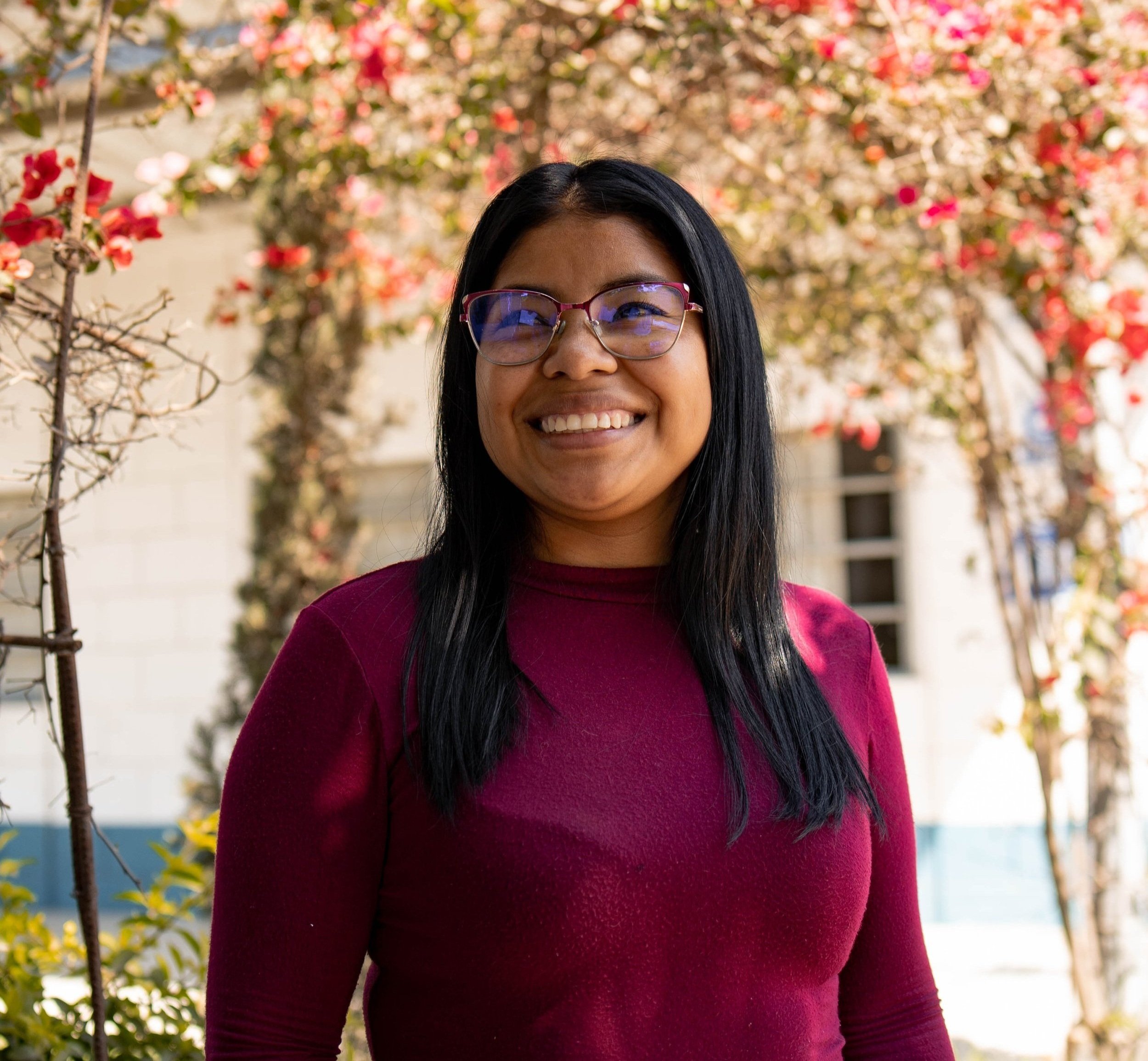Q&A with Eva, Creamos' Workforce Development Coordinator
The Job Inclusion Department is a true representation of the future we envision for Creamos because it will be spearheaded by a former Creamos participant, Eva López. Under her leadership, she will shape and guide the most recent way that we are helping make participants' goals a reality.
How and when did you first become involved with Creamos?
I became involved in Creamos in 2018 through exercise classes. Then I started going to sewing trainings, and I began learning how to operate the sewing machines, how to sew and make various products. I had never used a sewing machine before… After working in production for three years, I then became in charge of quality control and in that role I learned more techniques, oversaw production, and learned how to organize, review, and work under pressure.
What motivated you to apply to your position as Job Inclusion Coordinator?
I went to the garbage dump as a child. I was little and my mom couldn’t leave me behind so she took me to the dump, and I would help her. The majority of people that live here–perhaps everyone–has worked in the dump to be able to eat.
As an adult, [employers] have discriminated against me for living in such a dangerous place. When I applied to variou positions, they rejected me based on my address. My decision to apply to the position was to make sure that other people don't have the same experience that I had, and that they can find a good job through Creamos and the Job Inclusion Department
I want us to create connections with other businesses and prepare community members so that they are capable of things like writing their resume and going to an interview. But, I also want this program to help them improve their skills, whether that be coming to English classes or learning how to use a computer.
Can you provide context as to why specifically women from your community encounter challenges to entering the formal sector .
There are various factors that determine why a woman can’t find work. There is a low level of education in Guatemala in general, but especially low for women. Most have only finished first grade. Also, women are taught that men are supposed to provide and sustain the family, we still have to work informally out of necessity, and because of low education levels, the majority of women here surrounding the garbage dump have likely not had a formal job.
Another reason is the zone in which we live. It’s a high risk zone and with high levels of violence and employers don’t want to hire people from a place like this.
Another factor is that the formal sector is discriminatory in that they don’t want to hirer older candidates. Age 18 to 22 seems to be the window of time to enter the workforce. If you are older, you have a much lower chance of being considered for a position.
What kind of government presence or assistance is there in your community?
The government focuses more on exclusive zones and gives priority to the elite, who already have connections, and are doing well economically… Here, the majority of [community residents] are illiterate…. In Zone 3 no one who speaks up for us or represents us–it has become a zone forgotten by the government.
For example, here in Zone 3 when there are fires in the garbage dump, the government sends materials like corrugated plastic to build some sort of shelter. It's a publicity stunt. They do this and then they leave. They respond to disasters, they don’t invest in preventing them in the future.
What is an example of some of the assistance the Job Inclusion Department will be providing to participants?
One of our priorities is helping participants to write their resumes, exploring interviewing strategies, how to dress for an interview, and supporting them through the process for obtaining a background check. We’re the only organization doing this in the community, and though it may seem small, it’s important because these small details are why people from here have been denied opportunities for employment–simply because they might not know how to create a resume.
Something else we’re providing are financial literacy classes. We have realized that it's really important that people know how to open a bank account and it’s just one more impediment to obtaining a position. In the private sector, it’s mandatory to have a bank account and a supervisor is not going to take the time to do this.
How do you feel being in this new role?
I feel proud to be in the position that I am. I always wanted a similar job and I never imagined finding one that exceeded my expectations. I feel happy and proud to be in this department, because the cause is for the well being of the community—a dignified life, a better job, better working conditions. Being able to help others makes me proud.

